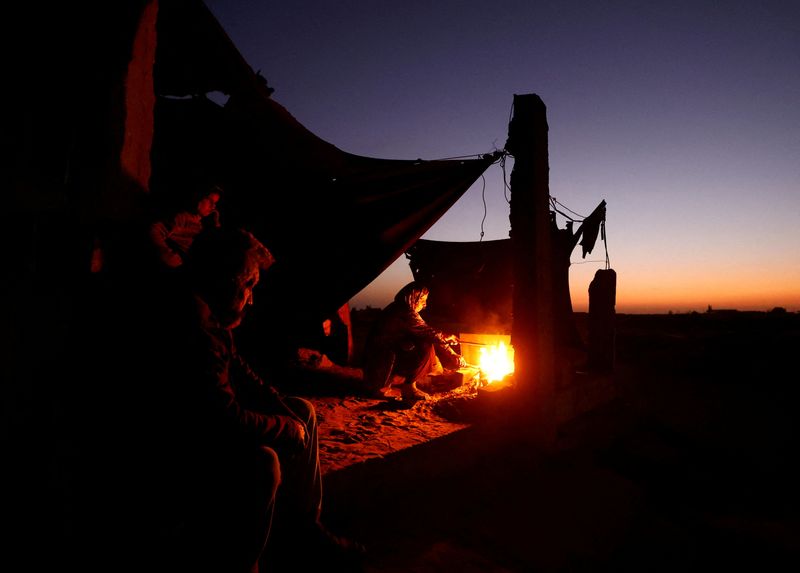By Mohammed Salem
KHAN YOUNIS (Reuters) - After more than a year of war, Abu Razzak Al-Qassas and his family live in a makeshift shelter within a cemetery in the southern Gaza Strip, dependent on food donations for survival.
The Al-Qassas family, originally from Gaza City in the northern part of the coastal enclave, are among many other displaced that are staying in the Khan Younis cemetery.
"Look at how terrifying and frightening it is for the children. Look at how we are living, there is no food and water," Al-Qassas said, pointing to the cemetery's gravestones.
Most of two million people in Gaza have been displaced by Israel's relentless assault on the strip. Some, like the Al-Qassas family, whose home was severely damaged, have had to move more than once.
The amount of aid entering Gaza has plummeted and there are severe shortages of food, water, medicine and fuel. Israel has often blamed aid agencies for failing to distribute aid inside Gaza. The U.S. has warned its ally Israel to improve the humanitarian situation in Gaza or face potential restrictions on U.S. military aid.
Hunger is prevalent and many people are living in tents and makeshift shelters of tattered tarps and blankets that are unlikely to protect them from the harsh winter they are about to face.
The Al-Qassas family live off bread that is warmed by an open fire, cheese and a mixture of spices and wheat.
"My children have nothing to eat or drink. They cry all night long. They want food. Where can I get it from?", Al-Qassas said, adding that the markets and border crossings were closed.
The war was triggered when militants from the Palestinian Islamist group Hamas stormed into southern Israel on Oct. 7, 2023, killing some 1,200 people and taking another 250 into Gaza as hostages, according to Israeli tallies.
Vowing to destroy Hamas and free the hostages, Israel's retaliatory assault on Gaza has killed more than 43,000 people, health officials say.

Repeated international efforts to end the war have failed.
"There is no life anymore in the entire Gaza Strip, whether in the north or in the south," said Al-Qassas' wife, Ghada.